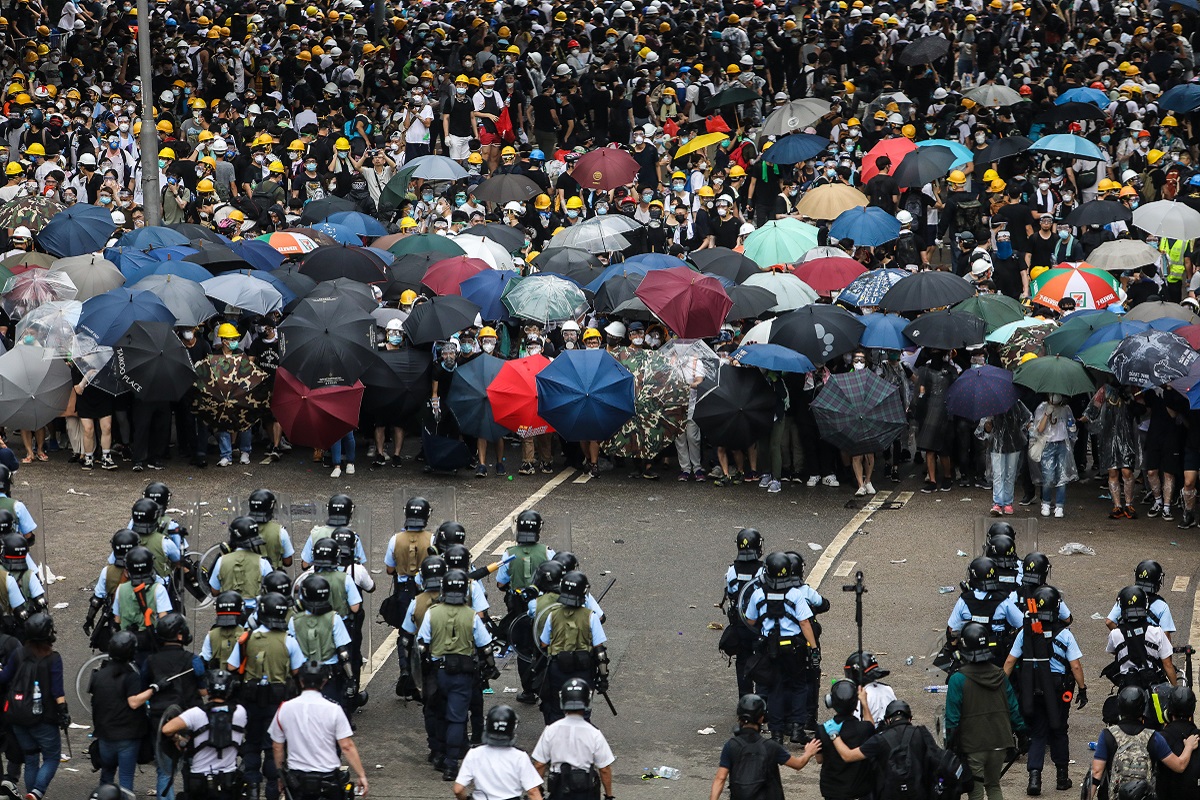Still unexplained
The hunt for the origins of Covid-19 has for the past four years been a tangled web of politics, power struggles, and international finger-pointing.
Never since Britain’s handover to China in 1997, has the island nation been convulsed with such fury.

Protesters face off with police during a rally against a controversial extradition law proposal outside the government headquarters in Hong Kong on June 12, 2019. Violent clashes broke out in Hong Kong on June 12 as police tried to stop protesters storming the city's parliament, while tens of thousands of people blocked key arteries in a show of strength against government plans to allow extraditions to China. (DALE DE LA REY / AFP)
The volatile situation in Hong Kong becomes still more intractable since last weekend with reports of a crack within the establishment over an extremely unpopular bill which will allow extradition to mainland China.
The island, virtually a protectorate of Beijing, now bears witness to the most violent street protests in years, recalling the Umbrella movement a couple of years ago.
The chief executive, Carrie Lam, has now postponed the implementation of the bill, but the gesture has scarcely been able to control the unrest. Also, one of her top advisers would rather that the bill is deferred. It is pretty obvious that the authorities, in their anxiety to play to the Beijing gallery, have rushed through the bill without reflecting on its repercussions.
Advertisement
Arguably, Ms Lam’s hardline stance, an echo of China’s perception, has backfired. And thus far the repercussions have roiled the country, with the protesters emerging as a forbidding challenge to the government. There is considerable disquiet within the populace and rumblings within the establishment over the brazen moves by China to curtail civil liberties in the former British territory.
Never since Britain’s handover to China in 1997, has the island nation been convulsed with such fury. Clearly, it will not be feasible to rush through the bill which has placed the city on edge. To an extent, Ms Lam may have relented to think it over, but it seems hugely unlikely that China will be muted in its response.
The surge in the movement, specifically against the legislation, and generally against China’s handling of the remote control device as it were, has had an economic impact. The affluent segment has started moving personal wealth to Singapore in view of the overwhelming uncertainty.
The extradition bill, which will cover Hong Kong residents and foreign and Chinese nationals “living or travelling through the city”, has sparked fears that it might threaten the rule of law that underpins Hong Kong’s international financial status. If the bill becomes law, it will be possible for mainland Chinese courts to request Hong Kong courts to freeze and confiscate assets related to crimes committed on the mainland.
The situation in Hong Kong is out of control, and the flight of capital is bound to damage the economy of the island nation. Enormously palpable is the groundswell of opposition to what they call “increased encroachment” by Beijing. It has even been suggested that the government was “saying no to democracy and suppressing human rights and the rule of law”.
More than two decades after the handover to China, Hong Kong is direly fractured, and the awesome crack is between the government and the people. It is the latter that has consistently shrilled for democracy. Not so the ruling establishment of the city-state, which kowtows to the dictates of China.
Advertisement